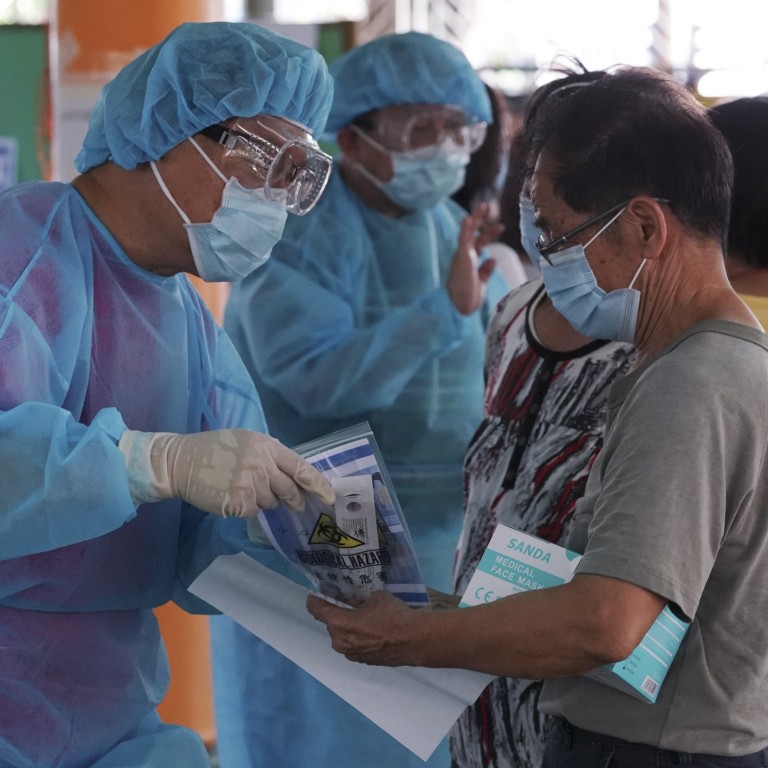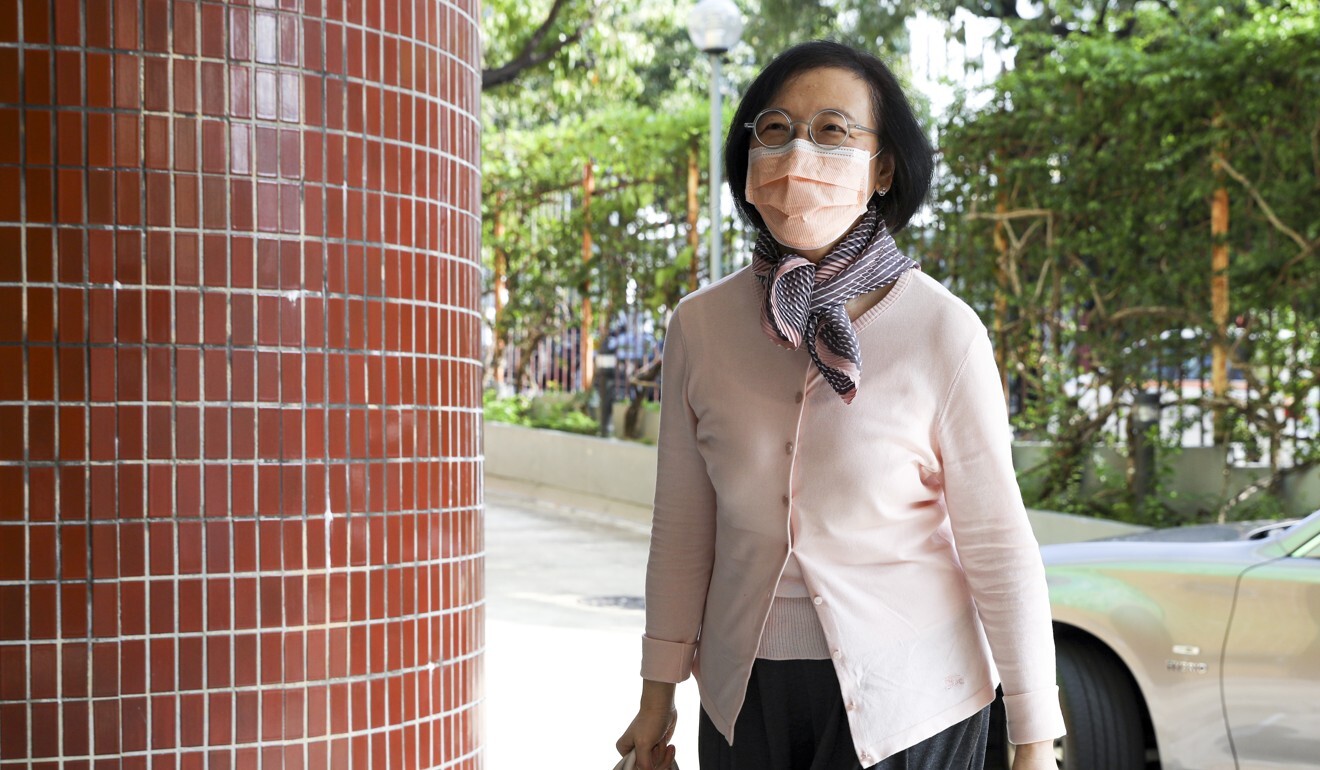
Hongkongers urged to stay at home to ensure Covid-19 testing works, as city records 26 new cases, including two more linked to port cluster
- Top health official calls on residents to avoid too many personal interactions while awaiting screening results
- Citywide testing, set to begin on September 1, will offer clearer picture of transmissions in the community, she says
A top health official in Hong Kong has urged residents to stay at home to ensure citywide testing for Covid-19 works, as two more employees at the coronavirus-hit main port were among 26 new cases confirmed on Saturday.
Dr Chuang Shuk-kwan, head of the Centre for Health Protection’s communicable disease branch, said residents who had submitted tests and were asymptomatic should try to “stay at home as much as possible”.
Close contacts of those who tested positive would be quarantined, and people should avoid too many personal encounters, Chuang said.
Her call came as Saturday’s figures extended the city’s downward trend of fewer than 100 daily cases to the 20th day, while two more Covid-19 patients died. The total number of infections in the city rose to 4,657, with 77 related deaths.
All but two of the new infections were locally transmitted, while seven cases had not yet been traced. More than 20 people tested preliminary positive.
The Hospital Authority said an 82-year-old woman, admitted to the Prince of Wales Hospital earlier this month due to fever, died in the afternoon. She was the second fatality among residents of the Salvation Army Lung Hang Residence For Senior Citizens in Tai Wai, which has recorded 15 infections to date. A 65-year-old woman staying at Caritas Medical Centre in Sham Shui Po also succumbed to the disease.
Saturday’s two imported cases were toddlers returning with their family from India on August 14 on Air India flight 314, which has had 19 infected passengers so far.
“The overall trend has been slowly decreasing,” Chuang said. “But I think it’s been a bit static in the past few days.”

She compared the recently recorded numbers to those of the second wave peaking in March, which saw a stretch of double-digit daily cases rising as high as 65, and added the situation had not been fully brought under control.
Chuang said universal testing, set to begin on September 1, would offer a clearer picture of some of the untraceable transmissions in the community.
Earlier in the day, Secretary for Food and Health Professor Sophia Chan Siu-chee also called on residents to join the voluntary screening programme so authorities could detect and isolate as many asymptomatic carriers as possible. She told a morning radio show preparations for the voluntary Covid-19 testing scheme were nearly all set.
“We will do our best to make the community testing programme as beneficial and convenient as possible for the general public,” she said, adding that more than 100 testing stations would be set up across the city’s 18 districts.
Free mental health support amid Covid-19 offered via Mind HK
Chan said several thousand trained medical professionals, such as doctors, nurses and dentists, had already signed up to help with collecting specimens at the testing centres, but stressed more people were needed to make the scheme much more efficient.
The health minister said it was difficult to estimate how many people would opt to be tested as the number of infections continued to fall.
“In our experience, when the pandemic situation was more serious, more people would be nervous about being infected and would come out to be tested,” she said.
Meanwhile, a shipping clerk and a crane operator at the Kwai Tsing Container Terminals were among the latest confirmed cases.
Chuang said the employees worked at two different companies unrelated to Wang Kee Port Operation Services, which has 44 infections out of the 73 cases linked to the port so far. She said two to three other workers who operated the same crane would be quarantined, while the clerk had not come into close contact with any colleagues, as she usually brought her own meal, ate alone and did not use the resting rooms at the port.
Authorities had collected and tested some 6,500 samples from about 8,000 workers at the terminal, she added.
On Friday, the Civil Service Bureau asked all permanent secretaries and department heads to nominate serving government staff and retired civil servants to perform administrative duties at community testing centres.
The scheme needs supervisors, deputy supervisors, registration officers and general workers, with hourly rates ranging from HK$200 (US$26) to HK$900. According to the bureau, the testing centres will remain open from 8am to 8pm for two weeks, starting from September 1.
Paramedics working for the Fire Services Department have also been invited to collect samples at testing centres, with an hourly wage of HK$400.
Guangdong province’s health commission, meanwhile, said the virus strain in five recent Covid-19 patients in Lufeng county in Shanwei was 99.99 per cent genetically similar to the prevalent strain in Hong Kong.
Dr Ho Pak-leung, a University of Hong Kong microbiologist, said he believed the strain had been transmitted from Hong Kong, and urged local authorities to screen more than 30 groups of people presently exempted from quarantine, such as cross-border truck drivers, and businessmen.
Hong Kong authorities said they would help trace and test potential contacts of those mainland patients.
With public services gradually resuming – as announced by various government departments – the MTR said it would begin increasing the frequency of trains, which had been cut back during non-peak hours.
For a short window just after peak hours – from 9am to 10.30am in the mornings, and 8pm to 9.30pm in the evenings – most lines will see almost twice as many trains running than have been operating lately, though services for the Airport Express and the Disneyland Resort line will remain the same.
Additional reporting by Kimmy Chung


